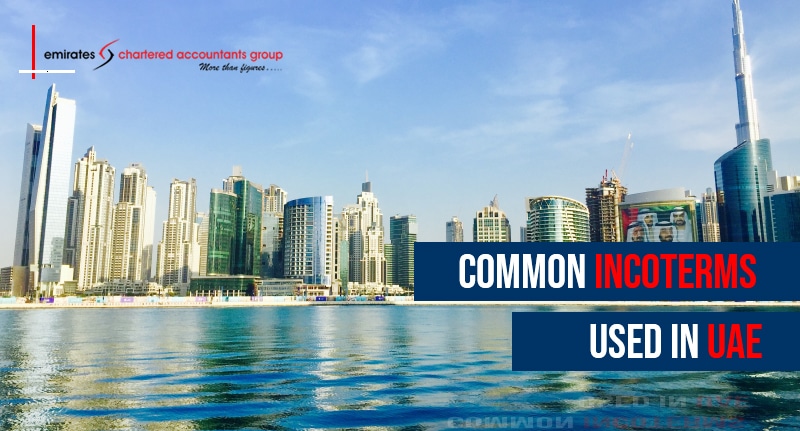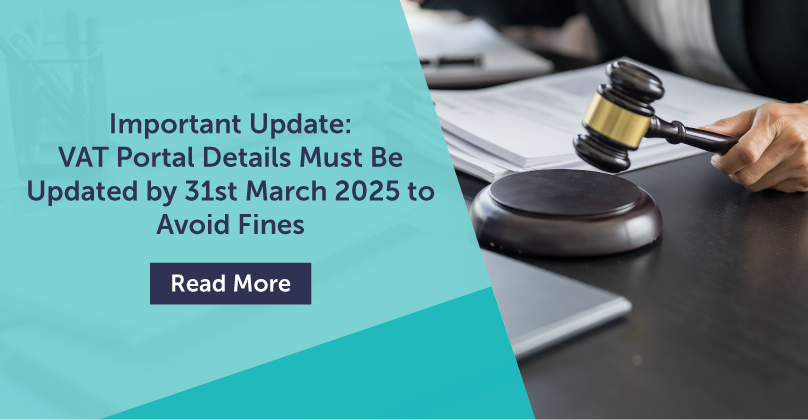
What are Incoterms?
The term Incoterms have always been a key phrase associated with International trade. Incoterms became common parlance amongst business groups with the introduction of VAT in UAE. As the readers might already know, imports and its accounting as per the UAE VAT law has always been a point of interest since the inception of the tax laws in UAE.
By introducing a special mechanism for Reverse charge, the authorities put forward a mechanism of accounting for VAT during the time of Import and eliminating the need for payment of VAT before clearing the goods from Customs port. By far, in the opinion of the writer, this is one of the areas in UAE VAT which confuses a lot of registrants. Issues such as,
- what is the value of the import?
- What is the amount of VAT that businesses have to account in their books?
- What to do if there are differences in values picked by Customs and how to adjust them?
These are just a few qualms our readers face in their day to day businesses.
But before addressing these issues one must understand the various terminologies associated with Imports, the important one –
INCOTERMS.
The business should analyze various Incoterms before determining the taxability as the rights and responsibilities also vary with various terms. Incoterms are commercial terms defined by the International Chamber of Commerce which outlines various trade practices involved in international supplies. These terms are identified across the globe and help in facilitating sale contracts worldwide.
The International Chamber of Commerce has been publishing and updating the incoterms in regular time intervals, first being 1923 and the latest in 2019 which is the ninth edition of the contract terms.
Why is Incoterms important?
Incoterms are significant in the indirect tax regime because the duty costs of the supplies are computed against various Incoterms. Based on the different incoterms specified by different countries, tax remitted by importers to the governments also varies. Apart, from the duty costs, the responsibility to pay duty also sift from one person to another (Seller or buyer) based on the incoterms in which such contracts are entered into.
Thus, it is imperative for a business to properly define their incoterms before entering international trade. Also, Incoterms act as a standard guideline for businesses across the globe and it eliminates the confusion arising from various understandings of law in various countries.
Common Incoterms used in UAE EXW – Ex Works
Ex-works contracts refer to the contracts in which supplier makes the goods available at their factory/location and buyer takes the delivery from such location as agreed. In such a contract, the seller has a minimum responsibility since the ownership is transferred before transit and all costs related to shipment is incurred for such foreign buyer. The buyer will also be required to arrange the export by clearing goods at various customs ports.
CIF – Cost, Insurance & Freight
CIF contracts are those contracts where the supplier will undertake the liability of transporting the goods up to the port of buyer and will also incur the costs of Insurance and freight up to the country of purchase. Clearance from the port and delivery to the location of the buyer is not the responsibility of the supplier.
FOB – Freight on Board
In the case of FOB contracts, the seller will have the responsibility to incur the costs and liabilities up to the point where goods are loaded to the ship. The export clearance at the port of origin will also be the responsibility of such a seller. But once the goods are loaded in the ship and export documents are handed over the overseas buyer, the ownership is transferred and any further costs incurred becomes the responsibility of the buyer.
FOB supplies are the most common method of international trade which helps the buyer to shift the export clearance to the seller while the seller limits his liability till the port of origin.
DAP – Delivered at Place
A recent addition by ICC to the Incoterms is DAP or Delivered at Place. As the name suggests, in these type of contracts, the responsibility of delivering the goods at the site of the buyer falls on the seller. The entire responsibility, from the supplier’s place of residence until the buyer’s location, falls in the hands of the seller. The entire risk associated with the supply is in the hands of the seller.
DDP – Delivered Duty Paid
Similar to DAP, DDP or Delivered Duty Paid is a type of Incoterm wherein the seller has the maximum liability on the supply. The seller has the responsibility to deliver goods at the place of choice of the buyer. Usually, the unloading charges will have to be borne by the supplier which if under DAP shall be the responsibility of the seller.
Recently, there has been a spike in the use of this type of incoterm as there is a shift of responsibility from buyer to seller which was not the case traditionally. The above discussed were certain types of
Incoterms generally have seen in UAE with international trade. There is no perfect incoterm method to do business as each of these has its own merits. As an Importer, you will have to review each contract to identify the incoterm associated with it as the same have multiple tax implications and decisions regarding the change of ownership.
A business must identify the incoterm in which a contract is entered and need to identify the point of taxation as per UAE VAT Law which might affect the accounting related to Reverse Charge.
Emirates Chartered Accountants Group is a Registered Tax Agent with the Federal Tax Authority under Emirates International Chartered Accountants Group. We are happy to support and guide your company for any of the above-mentioned requirements.
Our Tax Professionals are highly qualified and well versed with the UAE Tax Law with the practical implementation of VAT in UAE and Bahrain. We understand that every business is different from the other. Hence, each of our services is tailored as per your business needs.
- Tax Agent’s Service
- VAT Return Filing
- VAT Service
- VAT Registration
- Excise Tax Service
- VAT Deregistration
For Tax Services in Dubai:
Mr. Pradeep Sai
sai@claemirates.com
+971 – 556530001
For Tax Services in Abu Dhabi:
Mr. Navaneeth
nav@claemirates.com
+971 – 558892750
For Tax Services in Northern Emirate (Sharjah, Ajman, RAK, Fujairah)
Mr. Praveen
praveen@claemirates.com
+971 – 508873115




